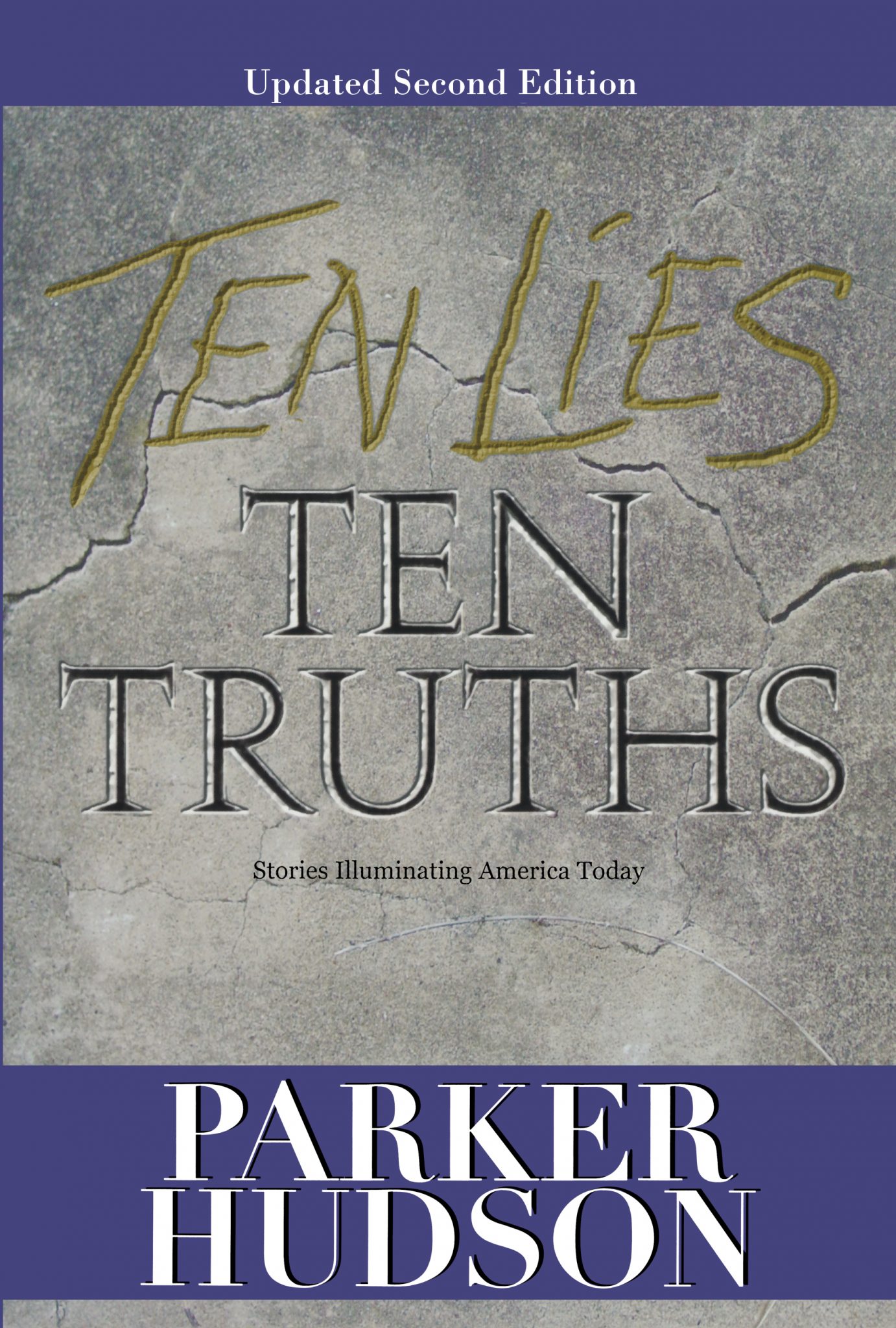Carmen LaBerge has written a remarkable new book, out this week, Speak the Truth: How to Bring God Back Into Everyday Conversation.
The book is full of relevant and practical insights and recommendations on how to engage neighbors, colleagues and families on the central question of life: me or Thee?
Carmen has not written a series of lectures to be given to non-believers on how the world, and America in particular, are going to hell, thanks to their secular idolatry.
Rather, Carmen starts with that prospect as a given, and then asks what we, as followers of Jesus, should do. The answer is a very practical handbook on how to engage others, one person (who is made in the image of God) at a time.
Carmen’s admonition is to engage others, as Jesus did, not as a lecture hall, but as an individual lost son or daughter of the living God desperately in need of a Savior and of God’s Truth. What the world needs is not a Christian America, but for the Christians in America to be distinctively and authentically Christian. (p 21).
She calls this approach conversational apologetics, or pre-evangelism. The moment we lose sight of another person’s humanity we have a problem. God sees people as real persons, created in His image, to the praise of His glory. As soon as we see people as anything less, we run afoul of the Biblical worldview. People are not a problem to be solved, a population to be controlled, a labor force to be exploited, a means of production to be managed, nor a mass to be manipulated. We are people. Red, yellow, black, white, equally precious in God’s sight. (p.141)
of another person’s humanity we have a problem. God sees people as real persons, created in His image, to the praise of His glory. As soon as we see people as anything less, we run afoul of the Biblical worldview. People are not a problem to be solved, a population to be controlled, a labor force to be exploited, a means of production to be managed, nor a mass to be manipulated. We are people. Red, yellow, black, white, equally precious in God’s sight. (p.141)
But people often ask me, “How do you know what to say?” The truth is, I don’t. But it’s not about me…I trust that God knows how to speak His redemptive love into their life [through the words He gives me].”(p.xxiv)
Carmen’s focus is on rewriting each individual’s personal story, weaving and caring for it so that the resulting cultural quilt might again resemble the America that Alexis de Tocqueville found in 1836, when he wrote in Democracy in America that our nation’s unique strength was how Judeo-Christian faith and values were woven deeply and inexorably into the multi-faceted quilt of our society. People might differ on the details of worship, or on specific laws, but the underlying foundation for any discussion was a nearly universal belief in the God of the Bible as the Creator and Sustainer of all people, and particularly of this nation.
woven deeply and inexorably into the multi-faceted quilt of our society. People might differ on the details of worship, or on specific laws, but the underlying foundation for any discussion was a nearly universal belief in the God of the Bible as the Creator and Sustainer of all people, and particularly of this nation.
Interlaced with Carmen’s practical advice on conversational apologetics she also has some powerful observations:
In conversation, I have learned that whatever the presenting issue, God is the issue. (p xiv)
The Enlightenment and therefore humanism, does not and cannot answer the big questions of where we came from, why we’re here, or what happens to us when we die. (p.136)
Abortion is the leading cause of death in America and has been for decades. More Americans die as a result of the intentional termination of their life by their own mother than by any other cause. (p 45)
What would happen to our conversations if we entered every encounter with another person—every  encounter—as a potential divine appointment God set for that day? (p 159)
encounter—as a potential divine appointment God set for that day? (p 159)
I strongly recommend Carmen’s book and hope that you will both enjoy it and learn from it.
From personal experience, I want to emphasize one approach that Carmen also mentions: the power of questions.
I entered the commercial real estate business right after the technological discovery that straw helps hold bricks together. It was the early ‘70’s, and the cassette tape was the most advanced form of personal education. Someone gave me a tape entitled “Questions Are The Answers”. I don’t know the author and wish that I could find it today. It was the supposedly true story of a top producing residential agent who was blind. Because she could not see any homes herself, she had to ask questions, and her best questions could not be answered with just Yes or No.
 When, riding with her clients, they pulled up in front of a home, she asked, “Describe your first impression from the street.” Often she would immediately learn that they were not in the market for a frame home, something a sighted agent might learn only after a thirty minute tour through a non-starter.
When, riding with her clients, they pulled up in front of a home, she asked, “Describe your first impression from the street.” Often she would immediately learn that they were not in the market for a frame home, something a sighted agent might learn only after a thirty minute tour through a non-starter.
On the inside, instead of saying, “And here’s the dining room”, which everyone knew anyway, she would ask, “Will your furniture fit, and how will it look, in this dining room?” The answers told her a lot.
“Which way will your children’s bed fit in this bedroom?”
“Please describe the kitchen to me.”
“What, if anything, would you need to do to the master bedroom?”
Besides the pure information in the answers, these questions and the clients’ answers gave her invaluable clues about the family, their past experiences, their decision making process, and how best she could help them.
about the family, their past experiences, their decision making process, and how best she could help them.
Contrast that engaged approach to the agent who talks non-stop for several hours. What useful information has he or she learned about those who genuinely need help?
The same contrast applies to us, as we engage people about the most important issues in life. The blind agent is a good metaphor for us to remember as we talk with others: we cannot “see” the issues in their lives, nor imagine how the Holy Spirit may already be at work in them, unless we ask questions.
If nothing else, approaching people with questions rather than declarative advice, whatever the subject or the immediate result, leaves them with the impression that we care about them, which in many cases is half the battle.
When I am talking with someone who is mildly or fervently opposed to subjects about faith or behavior, and is defending his or her approach to a subject, or to life in general, I have found that one of the most powerful questions is, “And how’s that working out for you?”
I then have to be quiet, and not fill the silence no matter how long they take to answer. I’ve found that the answer usually includes some issue, large or even tiny, which nevertheless opens the door a slight crack for a further question and conversation.
As Carmen writes, if we pray about the other person, pray for guidance, and let the Holy Spirit lead, He knows exactly what we should say, even when we don’t. So relax, suit up, get out on the field every day, and engage with everyone, confident that He keeps the scoreboard, not us.


Excellent insight..would like to learn more.